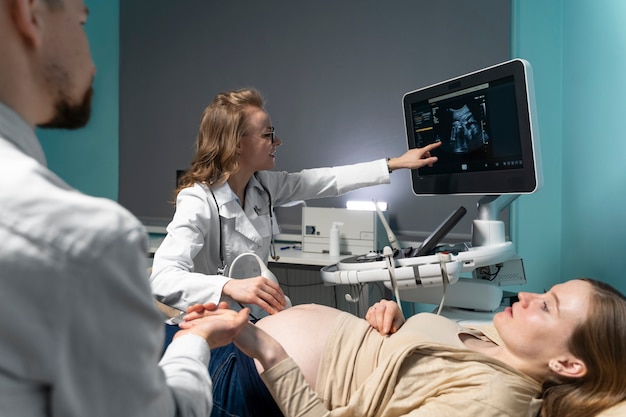
Pregnancy is a special time in your life and taking good care of yourself and your baby is crucial. This means eating right, avoiding alcohol and smoking, and being cautious about medications and medical procedures. One important aspect to be aware of is exposure to diagnostic X-rays and medical radiation.
X-rays can provide essential medical information, but they come with risks, especially during pregnancy. It’s important to only have X-rays when your doctor deems it necessary. While the risk from X-ray exposure is generally low, even small risks can be significant over time.
To lower these risks, always inform your doctor if you think you might be pregnant, especially before abdominal X-rays. Your doctor can then decide whether to cancel or adjust the procedure to minimize radiation exposure. Typically, X-rays of limbs, the chest, or the face do not expose the reproductive organs and therefore pose little risk to the baby. However, X-rays of the abdomen, stomach, lower back, pelvis, or kidneys can directly expose the baby to radiation, which is more concerning.
There is ongoing debate about whether low doses of radiation from diagnostic X-rays can harm an unborn child. Rapidly dividing and growing cells, like those of a fetus, are particularly sensitive to radiation. This can potentially lead to birth defects or health issues later in life. It’s also important to note that many birth defects can occur without any radiation exposure due to other factors like genetics.
If you had an X-ray before knowing you were pregnant, there’s no need to panic. However, it’s wise to discuss any concerns with your doctor, especially if it involved the abdomen. Always inform your healthcare provider about your pregnancy for all medical decisions, including prescriptions and other diagnostic procedures.
For dental X-rays, the risks are generally low, but for other types, ensure you follow safety guidelines. If an abdominal X-ray is necessary during pregnancy, let the X-ray technician know so they can take extra precautions, such as using protective aprons.
Abortive or high-dose radiation exposures early in pregnancy can be particularly harmful, potentially leading to miscarriage or developmental issues. The risk of serious issues increases with higher doses of radiation, especially between the 2nd and 15th weeks of pregnancy. However, typical diagnostic X-rays usually deliver much lower doses.
To minimize risks, avoid unnecessary X-rays, inform your doctor about your pregnancy, and use protective measures if an X-ray is absolutely needed. Keep in mind that routine ultrasounds and low-dose X-rays are generally considered safe and can be beneficial for prenatal care.
In conclusion, while X-rays can be necessary and beneficial, it’s essential to approach them with caution during pregnancy. Always inform your healthcare provider about your pregnancy so they can make informed decisions to ensure the safety of both you and your baby.